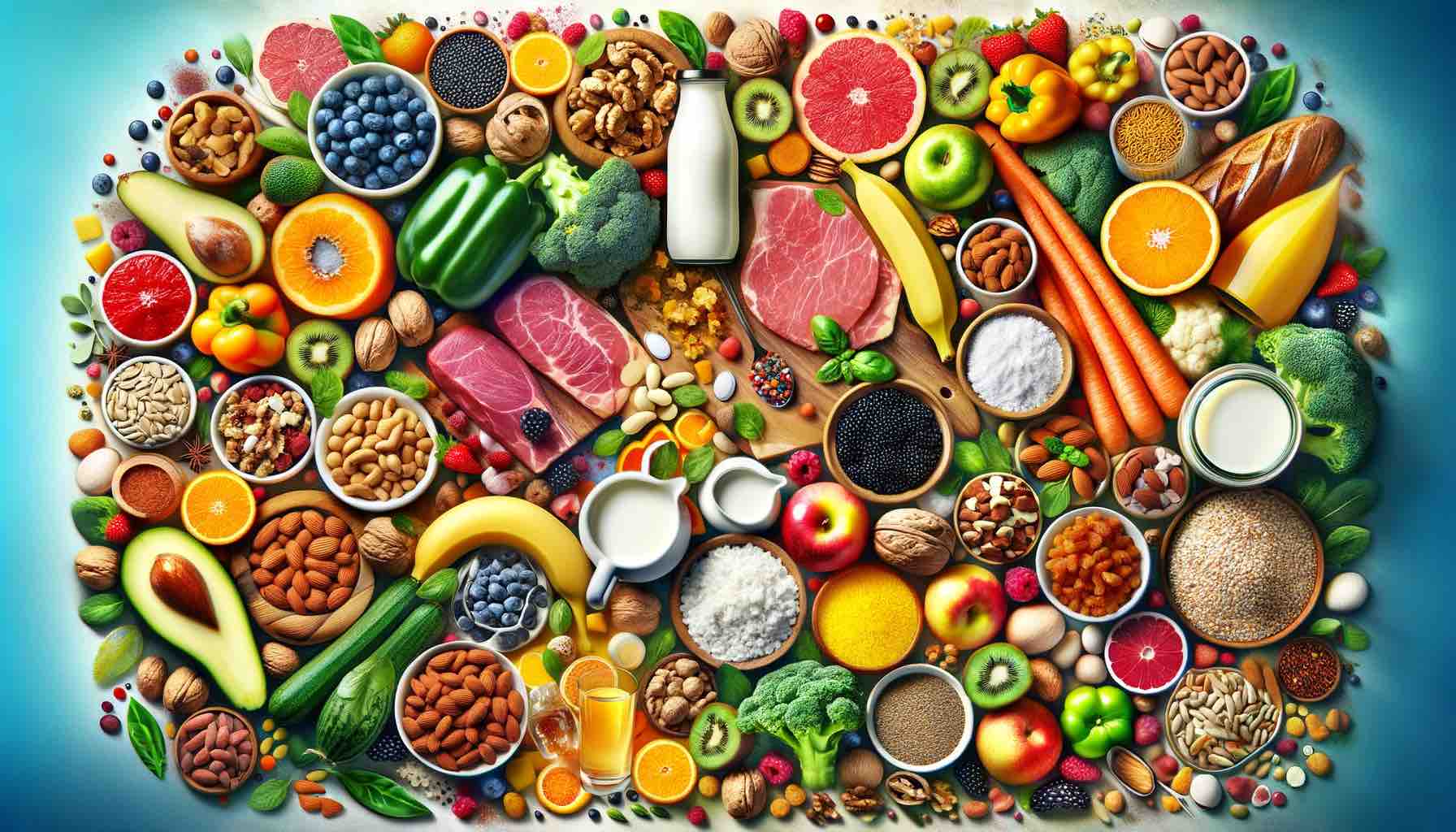
Introduction
Embracing the Journey: A Compassionate Transition to Solid Foods for Your Vegan Baby
Welcome, compassionate parents! As you embark on this exciting and important journey of introducing solid foods to your baby, it’s vital to navigate this transition with care and knowledge, especially within the bounds of a vegan lifestyle. This guide is crafted to be your ally, offering you a blend of practical advice, nutritional expertise, and heartfelt encouragement.
Why Solid Foods? The transition to solid foods is a significant milestone in your baby’s life. It’s not just about nutrition; it’s about exploring new textures, tastes, and skills. For vegan parents, it’s also about instilling values of compassion and health right from the start.
Nutritional Considerations: It’s a common concern among vegan parents – how do we ensure our babies get all the necessary nutrients? This guide will demystify the nutritional needs of your growing baby and show you how to meet them with a plant-based palette.
The Right Time: Every baby is unique, and there’s no one-size-fits-all timeline. We’ll delve into recognizing the signs that your baby is ready for solids, a crucial step in making this transition smooth and enjoyable.
Embarking on this journey together, we’ll explore everything from the first spoonfuls to full meals, ensuring that your baby’s introduction to solid foods is as nourishing and delightful as it is aligned with your vegan values.
So, let’s turn the page and begin this beautiful, healthful journey together, paving the way for your little one’s lifelong journey of healthful, compassionate eating.
Understanding Infant Nutrition in a Vegan Household
As you begin introducing solid foods to your vegan baby, understanding their nutritional needs is paramount. This section delves deep into the essentials of infant nutrition, ensuring your baby thrives on a plant-based diet.
1. The Nutritional Cornerstones
A. Key Nutrients: For a baby’s growth and development, certain nutrients are critical. In a vegan diet, pay special attention to:
- Iron: Essential for cognitive and physical development. Iron-fortified cereals, pureed legumes, and green leafy vegetables are excellent sources.
- Protein: Vital for growth. Include soft-cooked and mashed lentils, chickpeas, and tofu in your baby’s diet.
- Calcium: Important for bone health. Offer calcium-set tofu, fortified plant yogurts, and pureed dark green vegetables.
- Omega-3 Fatty Acids: Crucial for brain development. Incorporate ground flaxseeds, chia seeds, and hemp seeds into meals.
- Vitamins B12 and D: Often supplemented in vegan diets. Consult with a pediatrician about appropriate supplements.
B. Balancing Macronutrients: Ensure a balance of carbohydrates, proteins, and fats in your baby’s diet. Whole grains, a variety of fruits and vegetables, and healthy fats like avocado and nut butters provide a well-rounded nutritional profile.
2. Addressing Common Concerns
A. Protein Diversity: It’s a myth that vegan diets lack protein. Offer a variety of plant-based protein sources to ensure a complete amino acid profile.
B. Iron Absorption: Enhance iron absorption by pairing iron-rich foods with vitamin C-rich foods like bell peppers, citrus fruits, and strawberries.
C. Avoiding Nutrient Deficiencies: Regular pediatric check-ups and blood tests can help catch any nutritional deficiencies early.
3. Supplements and Fortified Foods
A. B12 and Vitamin D: These are critical nutrients that might require supplementation. Discuss with your healthcare provider the best options for your baby.
B. Fortified Foods: Look for plant milks and cereals fortified with essential nutrients like calcium, vitamin D, and B12.
4. Homemade vs. Store-Bought Baby Foods
A. Homemade Baby Foods: Making your own baby food allows for control over ingredients and ensures freshness. It can be as simple as mashing a ripe avocado or pureeing steamed carrots.
B. Store-Bought Options: If opting for convenience, choose high-quality, organic baby food without added sugars or preservatives. Read labels carefully to ensure they align with your baby’s nutritional needs.
5. Hydration
A. Breast Milk and Formula: Continue breastfeeding or formula feeding alongside solid foods. They remain a key source of nutrition and hydration.
B. Water Intake: Introduce small amounts of water during meals, especially as your baby eats more solid foods.
In conclusion, a well-planned vegan diet can provide all the necessary nutrients for your baby’s growth and development. Stay informed, monitor your baby’s health, and consult with healthcare professionals to ensure your baby’s dietary needs are met. Your dedication to a compassionate lifestyle sets a strong foundation for your child’s health and wellbeing.
Recognizing Readiness for Solids: Gauging Your Baby’s Milestone
Transitioning to solid foods is a significant milestone in your baby’s growth journey. This section is dedicated to helping you recognize when your little one is ready for this big step, ensuring a seamless and enjoyable introduction to the world of solid foods.
1. Understanding the Signs of Readiness
Babies typically show readiness for solid foods around 4 to 6 months of age. However, each child is unique, and timing can vary. Key indicators to look for include:
- Physical Development: Can your baby hold their head up? Sitting up with minimal support is crucial for safe eating.
- Interest in Food: Does your baby seem fascinated by your eating habits? Reaching out for food or watching you eat are strong signs.
- Mouth Movements: Observe if your baby can move food to the back of their mouth and swallow, rather than pushing it out with their tongue.
2. The Right Age to Start
While most babies are ready around 6 months, some may show signs earlier or later. It’s essential to base your decision on readiness signs rather than a specific age.
- Early Starters: Some babies might show interest as early as 4 months. However, it’s generally recommended to wait until around 6 months for digestive system maturity.
- Late Bloomers: If your baby isn’t showing readiness signs by 6 months, don’t worry. Each child develops at their own pace. Keep offering opportunities to explore food without pressure.
3. Preparing for the Transition
Once you’ve identified the readiness signs, it’s time to prepare for this new dietary phase.
- Safe Eating Environment: Ensure that your baby is seated in a safe, upright position, like in a high chair.
- Baby-friendly Utensils: Use small, soft spoons and unbreakable plates or bowls.
- Right Food Textures: Start with smooth, pureed foods or soft, mushy textures to make swallowing easier.
4. Emotional Readiness
It’s not just about physical readiness; emotional readiness is equally important.
- Patience and Encouragement: Some babies might be hesitant. Offer encouragement and let them explore food at their own pace.
- Positive Mealtime Atmosphere: Create a stress-free, joyful eating environment. Your baby’s early food experiences can shape their future attitudes towards food.
5. Consulting Healthcare Professionals
Before starting solids, it’s advisable to consult with your pediatrician, especially for advice tailored to your baby’s health and development.
6. First Foods to Avoid
While exploring vegan options, be mindful of foods that are not recommended for early stages, such as honey (due to the risk of botulism) and hard, raw foods that pose choking hazards.
7. Signs It’s Not Yet Time
If your baby is still having difficulty with head control, shows no interest in food, or has a tongue-thrust reflex, they might not be ready. Reassess in a few weeks.
In conclusion, recognizing your baby’s readiness for solid foods is a blend of observing physical capabilities, gauging interest in food, and ensuring emotional preparedness. By tuning into these signals, you can ensure a smooth and enjoyable transition for both you and your baby.
First Foods in a Vegan Diet: Nourishing Beginnings
Introducing solid foods in a vegan household brings with it the excitement of sharing your values and love for wholesome, plant-based nutrition with your little one. This section focuses on choosing the best first foods for your vegan baby, ensuring they receive all the essential nutrients for healthy growth and development.
1. Starting with the Basics
The journey into solid foods begins with simple, easily digestible foods. Here’s where to start:
- Iron-Fortified Infant Cereals: A great first food, these cereals can be mixed with breast milk, formula, or water to create a smooth, easy-to-swallow meal.
- Soft Fruits and Vegetables: Avocado, banana, sweet potato, and butternut squash are excellent first choices. They can be steamed and pureed to a smooth consistency.
2. Ensuring Nutritional Adequacy
Each food you introduce should offer nutritional value. Focus on these key areas:
- Iron: Critical for brain development. Incorporate pureed legumes like lentils and peas.
- Protein: Essential for growth. Soft, cooked, and mashed beans and chickpeas are great options.
- Calcium: Necessary for bone health. Pureed dark green vegetables like broccoli and kale can be introduced as the baby’s digestive system matures.
3. Texture and Consistency
- Smooth Purees: Initially, offer foods in a form that’s easy to swallow. Gradually increase texture as your baby becomes more skilled at eating.
- Self-Feeding Exploration: As they grow, encourage your baby to explore different textures. Offer soft pieces of fruits and steamed vegetables for them to hold and nibble.
4. Flavor Diversity
- Introducing a Variety of Tastes: Expose your baby to a range of flavors. This can help develop a palate that enjoys a variety of plant-based foods.
- Mild Spices and Herbs: Introduce mild herbs and spices to enhance flavors without overwhelming your baby’s taste buds.
5. Allergen Introduction
- Careful Introduction: Introduce potential allergens like soy and wheat in small amounts and monitor for any reactions.
- Consultation with Pediatrician: Discuss the introduction of allergens with your pediatrician, especially if there’s a family history of food allergies.
6. Hydration and Feeding Frequency
- Breast Milk or Formula: Continue to breastfeed or use formula alongside solids to ensure your baby stays hydrated and receives adequate nutrition.
- Meal Frequency: Start with one meal a day, gradually increasing as your baby shows readiness for more.
7. Tips for Meal Preparation
- Homemade vs. Store-bought: While homemade baby food is ideal for freshness and control over ingredients, high-quality, organic, store-bought baby food can be a convenient option.
- Batch Cooking and Storage: Preparing baby food in batches and storing it in the fridge or freezer can save time and ensure you always have healthy options on hand.
8. Monitoring and Adjusting
- Observe Your Baby’s Reactions: Pay attention to how your baby responds to different foods and textures and adjust accordingly.
- Regular Pediatric Check-ups: Regular check-ups are essential to monitor your baby’s growth and nutritional status, especially in a vegan diet.
Introducing your baby to solid foods in a vegan household is an enriching experience that sets the foundation for healthy eating habits. By choosing nutrient-rich, age-appropriate foods, and embracing the journey with patience and joy, you’re providing your child with the best start in their lifelong relationship with food.
Diversifying the Diet: Expanding Your Vegan Baby’s Palate
As your baby grows and gets more comfortable with solid foods, it’s essential to diversify their diet. This stage is all about expanding the variety of foods they eat, ensuring they receive a wide range of nutrients and developing their palate for different tastes and textures.
1. Progressing Beyond First Foods
- Increasing Complexity: As your baby masters purees, introduce mashed and chunkier textures. This can include mashed beans, soft cooked grains like quinoa, and finely chopped soft vegetables and fruits.
- Exploring Flavors: Gradually introduce a wider variety of vegetables, fruits, grains, and protein sources. Include different types of legumes, whole grains, and a broader range of vegetables and fruits.
2. Encouraging Self-Feeding
- Finger Foods: Offer safe, baby-friendly finger foods like small pieces of soft fruits, steamed vegetables, and small, soft pieces of tofu.
- Developing Motor Skills: Self-feeding promotes fine motor skills. Ensure the pieces are large enough to handle but small enough to avoid choking hazards.
3. Introducing Complex Textures and Flavors
- New Textures: At around 8-9 months, your baby might be ready for more complex textures, like soft, cooked grains and small pieces of soft-cooked vegetables.
- Experimenting with Flavors: Introduce mild spices and a variety of herbs to enhance the flavor of foods without adding salt or sugar.
4. Balancing Nutrients in a Growing Diet
- Protein-Rich Foods: Continue to include a variety of plant-based protein sources like lentils, chickpeas, and tofu.
- Calcium and Iron: Focus on calcium-rich foods like fortified plant yogurts and dark leafy greens, and iron-rich foods like fortified cereals and legumes.
5. Managing Portion Sizes and Meal Frequency
- Adjusting Portions: As your baby grows, their appetite and portion sizes will increase. Pay attention to their hunger cues.
- Regular Meals and Snacks: Transition to a schedule that includes three meals and two to three snacks per day, depending on your baby’s appetite and needs.
6. Dealing with Picky Eating
- Patience and Persistence: It’s common for babies to go through phases of picky eating. Continue offering a variety of foods without pressuring them to eat.
- Making Food Fun: Encourage eating by making meals visually appealing and fun, like creating shapes or faces with food.
7. Continued Breastfeeding or Formula
- Ongoing Nutrition: Continue breastfeeding or formula feeding alongside solid foods, gradually reducing as your baby’s intake of solid foods increases.
8. Monitoring for Allergies and Sensitivities
- Watch for Reactions: Continue to monitor for any signs of food allergies or sensitivities, especially as you introduce new foods.
- Consultation with Healthcare Provider: Regular check-ups with a pediatrician are important to ensure your baby’s dietary needs are being met.
Diversifying your vegan baby’s diet is a crucial step in ensuring they receive a balanced array of nutrients and develop a healthy relationship with food. This phase is not just about nutrition, but also about exploring and enjoying the wide world of flavors and textures that a plant-based diet offers.
Practical Tips for Meal Preparation and Safety in a Vegan Baby’s Diet
As your baby’s diet becomes more varied, preparing meals safely and efficiently becomes even more important. This section offers practical advice on meal preparation and safety, ensuring your baby enjoys a diverse, nutritious, and vegan-friendly diet.
1. Efficient Meal Preparation
- Batch Cooking: Prepare larger quantities of baby-friendly foods and store them in the fridge or freezer. This can include purees, mashed vegetables, and soft-cooked grains.
- Versatile Ingredients: Use ingredients that can be easily adapted for baby meals and family meals. For example, if you’re making a vegetable stew, set aside some soft-cooked vegetables before adding spices for the baby.
2. Ensuring Food Safety
- Proper Storage: Store baby food in airtight containers and refrigerate or freeze immediately. Use refrigerated purees within 48 hours and thawed frozen foods within 24 hours.
- Avoiding Contamination: Always wash your hands before preparing baby food and ensure all utensils and surfaces are clean.
3. Introducing New Foods
- One at a Time: Introduce new foods one at a time and wait a few days before introducing another. This helps identify any potential allergies or sensitivities.
- Observing Reactions: Monitor your baby for any adverse reactions when introducing new foods, including skin rashes, digestive issues, or respiratory problems.
4. Making Mealtime Enjoyable
- Positive Environment: Create a relaxed, distraction-free environment for meals. This encourages your baby to focus on eating and enjoy their food.
- Involving Your Baby: Allow your baby to touch and play with their food. This sensory experience is important for their development.
5. Addressing Texture and Choking Hazards
- Progressing Textures: Gradually introduce more complex textures as your baby’s chewing and swallowing skills improve.
- Choking Prevention: Cut foods into small, manageable pieces and avoid hard, round, or sticky foods that could pose choking hazards.
6. Balancing Convenience and Nutrition
- Homemade vs. Store-bought: While homemade food is ideal, high-quality, commercial baby food can be a convenient supplement. Choose products with minimal ingredients and no added sugars or salt.
- Reading Labels: When buying packaged foods, always read labels to check for unwanted additives and ensure nutritional adequacy.
7. Using Supplements Wisely
- Consulting Healthcare Providers: Before adding any supplements to your baby’s diet, consult with a healthcare provider for personalized advice.
- Appropriate Supplements: Consider supplements for nutrients that might be challenging to obtain in adequate amounts from a vegan diet, such as B12 and Vitamin D.
Preparing meals for your vegan baby requires a balance of nutrition, safety, and practicality. By following these tips, you can ensure your baby’s meals are not only nutritious and safe but also enjoyable and conducive to their growth and development.
Monitoring Growth and Health: Ensuring Your Vegan Baby Thrives
As you nurture your baby with a vegan diet, monitoring their growth and health is crucial to ensure they are thriving. This section provides guidance on tracking development, identifying potential nutritional gaps, and maintaining overall health.
1. Regular Growth Check-ups
- Pediatric Visits: Schedule regular appointments with your pediatrician to track your baby’s growth, including weight, length, and head circumference.
- Growth Charts: Pediatricians use growth charts as tools to monitor overall development. Remember, each baby grows at their own pace, and these charts are guides, not absolutes.
2. Nutritional Monitoring
- Watching for Milestones: Pay attention to developmental milestones like sitting up, crawling, and walking. Delays in these can sometimes indicate nutritional deficiencies.
- Nutrient-Specific Tests: Discuss with your pediatrician the possibility of periodic blood tests to monitor levels of critical nutrients like iron, vitamin B12, and vitamin D.
3. Signs of Nutritional Adequacy
- Healthy Skin and Hair: Look for signs of good nutrition such as clear skin and healthy hair growth.
- Energy Levels: An active, energetic baby is often a sign of good health. Lethargy or unusual tiredness may warrant a nutritional review.
4. Dietary Adjustments as Needed
- Responsive Changes: Be prepared to make dietary adjustments based on your baby’s health and nutritional needs. This might include increasing calories, changing food types, or incorporating supplements.
- Consulting a Dietitian: Consider consulting a registered dietitian who specializes in vegan nutrition for personalized advice.
5. Understanding Natural Weight Fluctuations
- Growth Spurts and Plateaus: Babies often go through phases of rapid growth followed by slower growth. Understanding these patterns can help you avoid undue concern.
6. Importance of a Balanced Diet
- Diverse Foods: Ensure your baby’s diet includes a wide range of fruits, vegetables, grains, legumes, nuts, and seeds to provide a spectrum of nutrients.
- Food Groups: Focus on including all essential food groups in your baby’s diet, adjusting portions and content as they grow.
7. Maintaining Hydration
- Adequate Fluids: Along with solid foods, ensure your baby receives enough fluids, primarily through breast milk, formula, or water, as they grow older.
8. Handling Picky Eating Phases
- Patience and Creativity: It’s normal for babies to become picky eaters. Continue offering a variety of foods without pressure, and try creative presentations to make meals appealing.
9. Emotional and Physical Health
- Beyond Nutrition: Remember, your baby’s health isn’t just about physical growth but also emotional and cognitive development. Engage with your baby through play, conversation, and a loving environment.
Monitoring your vegan baby’s growth and health is a dynamic process that involves regular check-ups, being observant to changes, and being responsive to their evolving nutritional needs. With careful attention and informed choices, you can ensure that your baby not only grows healthily on a vegan diet but also enjoys a vibrant start to life.
Transitioning to Toddlerhood: Adapting the Vegan Diet as Your Child Grows
As your child transitions from infancy into toddlerhood, their dietary needs and eating habits will evolve. This final section provides guidance on adapting the vegan diet for your growing toddler, ensuring they continue to receive all the necessary nutrients for robust health and development.
1. Adapting to Increased Energy Needs
- Higher Caloric Foods: Toddlers are more active and require more energy. Incorporate calorie-dense foods like nut butters, avocados, and whole grains into their diet.
- Balanced Meals: Ensure each meal includes a good balance of carbohydrates, proteins, and fats.
2. Continuing Nutrient Monitoring
- Key Nutrients: Focus on providing adequate iron, calcium, vitamin D, and B12. These are crucial for continued growth and development.
- Regular Check-ups: Continue with regular pediatric check-ups to monitor growth and nutritional status.
3. Encouraging Self-Feeding and Independence
- Finger Foods: Offer a variety of finger foods to encourage self-feeding and independence. This also helps in developing fine motor skills.
- Meal Participation: Involve your toddler in meal choices and preparation where possible, fostering a positive relationship with food.
4. Introducing More Complex Textures and Flavors
- Expanding Palette: Gradually introduce more complex textures and a wider range of flavors to broaden their palate.
- Chewing Skills: Offer foods that encourage chewing, like lightly cooked vegetables, fruits, and small pieces of plant-based proteins.
5. Handling Picky Eating Phases
- Variety and Patience: It’s common for toddlers to become picky. Offer a variety of foods and be patient as they explore their preferences.
- Healthy Snacks: Include healthy snacks between meals to ensure they’re receiving enough nutrients throughout the day.
6. Educating About Food Choices
- Food Awareness: As they grow, educate your child about healthy eating and the benefits of a vegan diet in an age-appropriate manner.
- Lead by Example: Children learn by example, so continue to model healthy eating habits.
7. Setting the Foundation for Lifelong Healthy Eating
- Consistent Habits: Establishing healthy eating habits during toddler years can set the foundation for lifelong nutritional well-being.
- Enjoyment of Food: Make mealtime enjoyable and stress-free to foster a lifelong positive relationship with food.
Conclusion
Raising a child on a vegan diet offers a unique opportunity to instill values of health, compassion, and environmental awareness from a young age. By adapting to your growing child’s nutritional needs, encouraging independence, and fostering a positive relationship with food, you are setting them up for a lifetime of healthy eating and well-being. Remember, the journey of raising a vegan child is not only about nutrition; it’s about nurturing with love, understanding, and mindful choices.
This guide, “Transitioning Your Baby to Solid Foods: A Vegan Parent’s Guide,” is a comprehensive resource designed to support you through the early years of your child’s life. Here’s to a journey filled with health, joy, and the rich flavors of a plant-based life!
10 FAQs for “Transitioning Your Baby to Solid Foods: A Vegan Parent’s Guide”
- What are the best first foods to introduce in a vegan diet for babies?
- Ideal first foods include iron-fortified cereals, pureed fruits like avocado and banana, and soft-cooked vegetables like sweet potato and carrot. These foods are easy to digest and nutrient-rich.
- How can I ensure my vegan baby gets enough protein?
- Include a variety of plant-based protein sources such as lentils, chickpeas, tofu, and mashed beans. These foods offer ample protein for growing infants.
- When should I start introducing solid foods to my baby?
- Typically, solid foods can be introduced around 4 to 6 months of age, but it’s essential to look for signs of readiness, such as good head control and interest in food.
- Are there any specific supplements my vegan baby needs?
- Vitamin B12 and Vitamin D supplements are often recommended for vegan infants. Consult with a healthcare provider for personalized advice.
- How can I prevent potential nutrient deficiencies in my vegan baby?
- Offer a well-balanced diet with a variety of fruits, vegetables, grains, and protein sources. Regular check-ups with a pediatrician can help monitor nutritional status.
- Can I use store-bought baby foods for my vegan baby?
- Yes, you can use store-bought baby foods, but choose high-quality, organic options without added sugars or preservatives. Always read labels to ensure they meet vegan standards.
- How do I introduce potential allergens in a vegan diet?
- Introduce potential allergens like soy and wheat in small amounts and monitor for any reactions. Start with one allergen at a time and wait a few days before introducing another.
- What textures are appropriate for my baby at different stages?
- Start with smooth purees and gradually move to thicker textures and finger foods as your baby develops eating skills. Ensure foods are soft enough to prevent choking.
- How can I encourage my baby to develop healthy eating habits?
- Offer a variety of foods, create a positive and relaxed mealtime atmosphere, and avoid pressuring your baby to eat. Allow them to explore different tastes and textures.
- What should I do if my baby is a picky eater?
- Continue to offer a variety of foods without pressure. Sometimes it takes multiple exposures for a baby to accept a new food. Be patient and keep mealtime positive.
Blog Tags for the Post
vegan parenting, infant nutrition, baby food, solid food transition, plant-based diet, baby health, vegan baby diet, first foods, baby feeding tips, weaning, dietary supplements, child development, allergen introduction, meal planning, picky eaters














